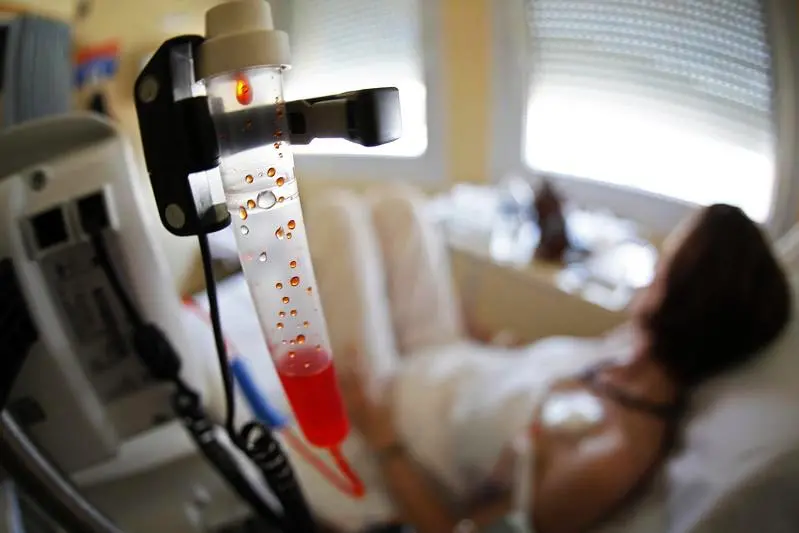PHOTO
NEW YORK (Reuters Health): A phase-2 test of an experimental rectal-cancer treatment found that it completely wiped out the tumor in 12 out of 12 volunteers, according to early results.
All the patients had mismatch-repair-deficient, locally advanced disease, a type typically seen in 5% to 10% of rectal-cancer patients.
The treatment with intravenous dostarlimab, an anti-programmed-death-1 monoclonal antibody, is designed to avoid the bowel, urinary and sexual problems, along with the infertility and quality-of-life issues that can plague many people treated for rectal cancer.
The antibody was given every three weeks for six months. Nearly all the patients had stage-III rectal adenocarcinoma.
The volunteers were supposed to have standard chemoradiotherapy and surgery after the treatment. They haven't needed it.
After a follow-up period ranging from six months to 25 months, "no patients had received chemoradiotherapy or undergone surgery, and no cases of progression or recurrence had been reported," Dr. Luis Diaz of Memorial Sloan Kettering Cancer Center, in New York City, and colleagues report in the New England Journal of Medicine.
"To date, 4 patients have had 1 year of sustained clinical complete response after completion of dostarlimab alone," they write.
The results were also released at the annual meeting of the American Society of Clinical Oncology.
"We were hoping to achieve a response of greater than 25% with PD-1 blockade when compared with standard response rates with chemotherapy and radiation," Dr. Diaz told Reuters Health by email. "We were very surprised (by the results). The chances of achieving this were less than 1 in a billion."
In an accompanying editorial, Dr. Hanna Sanoff of the University of North Carolina at Chapel Hill writes, "These results are cause for great optimism, but such an approach cannot yet supplant our current curative treatment approach."
"The end point presented, clinical complete response, is an imperfect surrogate for long-term cancer control," she notes. "Patients who have a clinical complete response after chemotherapy and radiation therapy have a better prognosis than those who do not have a clinical complete response, yet cancer regrowth occurs in 20% to 30% of such patients when the cancer is managed nonoperatively."
"In fact, very little is known about the duration of time needed to find out whether a clinical complete response to dostarlimab equates to cure," Dr. Sanoff notes.
Side effects to the treatment included rash, dermatitis, pruritus, fatigue and nausea, but no adverse events of grade 3 or higher have been reported.
The team is planning to test a total of 30 volunteers; 18 have been enrolled.
The monoclonal antibody is currently approved to treat endometrial cancer. It is sold under the brand name Jemperli by GlaxoSmithKline.
The cost for the nine doses is just under $11,000 per dose, Dr. Diaz said.
SOURCE: The New England Journal of Medicine, online June 5, 2022.




















